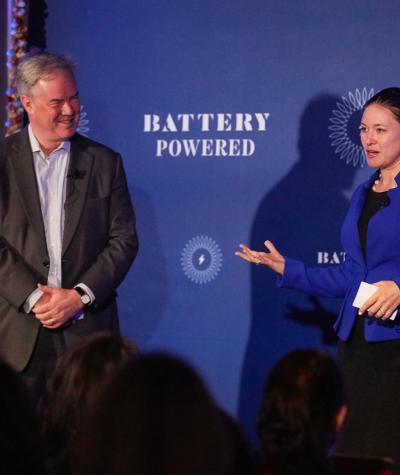There is unprecedented energy behind the movement to rein in partisan gerrymandering across America.
Citizens across ideological lines are tired of politicians redrawing the lines of their own electoral maps and distorting the political process to hold onto power for their own party. The effort by partisan politicians to marginalize voters has gone on for far too long, and is aided by sophisticated computer modeling that has taken this undemocratic practice to new extremes.
When citizens have a chance to take democracy into their own hands, they have consistently supported measures to end partisan gerrymandering. That is why this year’s 2018 midterm election cycle saw a perfect five-for-five states that voted to take redistricting power away from self-interested legislators. The states are:
- Michigan *(more info below)
- Colorado
- Utah
- Missouri
- Ohio
Campaign Legal Center’s (CLC) role has been to attend planning sessions for Independent Redistricting Commissions (IRCs) in the major cities that spearheaded these initiatives, help in the development of language (by ensuring that they survive legal challenges), and support the placement of the initiatives on the ballot. CLC’s communications team has also led public education campaigns.
One inspiring example is in *Michigan, where CLC senior legal counsel Ruth Greenwood attended planning meetings in Detroit and successfully pushed to include language in the initiative requiring that the state’s IRC not adopt a plan that favors one political party over the other. CLC organized and led a public education call in July to convene experts on redistricting and grassroots advocates. Katie Fahey was one of the speakers on this call. Katie, a 28-year old from a small village outside Grand Rapids, Mich. with no political experience, rose from unknown status to become a national celebrity this year by leading a massive volunteer effort to collect more than 425,000 signatures to get the question on the ballot. The effort survived court challenges in which CLC participated by filing court briefs in favor of Katie’s group, Voters Not Politicians. Ruth also worked behind the scenes to secure substantial funding for Voters Not Politicians. As a result of this initiative, now partisan officeholders and lobbyists are barred from becoming commissioners in a 13-member citizen redistricting commission that will be evenly split between Republicans, Democrats, and people that identify with neither party.
IRCs are a solution for citizens seeking a more independent and fair process where voters can directly voice their opinions without having to go through state legislatures. IRCs are an increasingly popular method to fight gerrymandering after the Supreme Court of the United States declined to rule on partisan gerrymandering cases from Wisconsin, Maryland, and North Carolina in June 2018. While the cases are still ongoing, the move to the states to demand fair maps by the 2020 election has achieved strong early results.
Battery Powered, a San Francisco-based member giving program of The Battery, announced a grant to CLC of $250,000 on November 15 to support CLC’s work to end partisan gerrymandering.
Learn more about Battery Powered’s grant to CLC. With the grant, CLC plans to strengthen our support for the fight to end gerrymandering. Arkansas, Oklahoma, Georgia, and several other states are moving towards similar initiatives to form independent redistricting commissions. Additionally, bipartisan coalitions of lawmakers and activists are seeking to reform redistricting through constitutional amendments beginning in the legislatures of Wisconsin, Pennsylvania, Virginia, and Illinois. Pennsylvania legislators have introduced a bill that, if passed and ratified by the people, would also establish a redistricting commission. Beyond the presidential election, 2020 is a pivotal year because the census, and therefore redistricting, only occurs every ten years. Every state will be drawing new district lines after the 2020 census, and a fair districting process is critical to ensuring that voters’ interests are accurately represented by both state and federal government. If IRCs are not adopted by 2020, the next chance to reform redistricting won’t come until after 2030.
With the 2020 redistricting cycle looming and public attention focused on partisan gerrymandering like never before, there is no better time for groups like CLC to enact reforms that permanently improve democracy in the states. Well-designed IRCs offer the best option to help ensure that the map drawing process is more transparent, all Americans’ voices are counted fairly and politicians are accountable and responsive to constituents.
--
Additional materials:
- In July, CLC produced a report, “Designing Independent Redistricting Commissions,” which has been used by legislators, citizen activists, and news outlets, including the New York Times Editorial Board in an opinion piece: [Do-It-Yourself Legislative Redistricting]
Learn more about other wins secured by CLC on democracy measures in the 2018 elections by viewing our democracy scorecard
